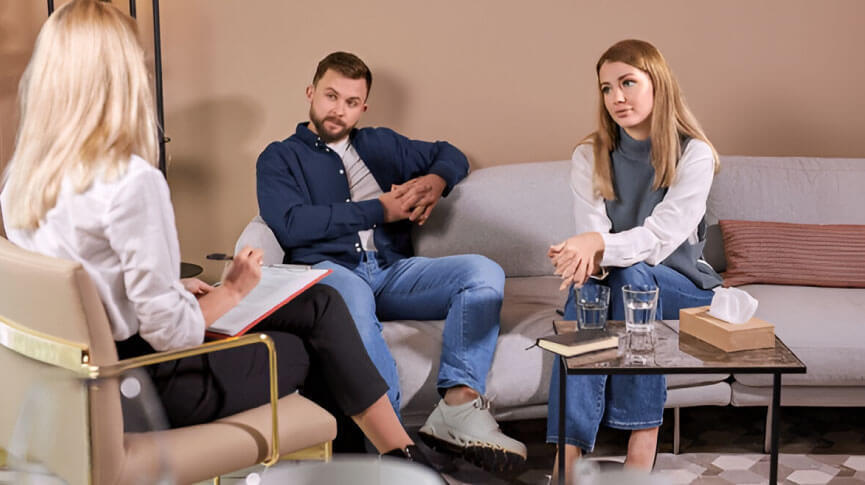
Sexual rehabilitation helps restore intimacy, comfort, and pleasure after illness, injury, or emotional trauma. It often includes gentle exercises, therapy, and supportive tools. Visit our DOXXES store on SW Freeway/Chimney Rock to explore helpful products in a discreet, welcoming space.
What Is Sexual Rehabilitation?
Sexual rehabilitation helps people return to enjoyable intimacy after changes in health. You may need it after childbirth, surgery, cancer, or emotional stress.
Doctors may classify pain or discomfort into three types:
- Superficial: pain at the skin or opening
- Deep: pain with deeper touch or penetration
- Provoked: pain in certain positions or during movement
Knowing your type helps you choose the right support.
Why Do People Need Sexual Rehabilitation?
Emotional reasons:
- Stress or burnout
- Past trauma
- Fear of intimacy
- Relationship challenges
Physical reasons:
- Recovery after childbirth or surgery
- Hormonal changes (menopause, low testosterone)
- Pelvic floor muscle issues
- Chronic pain or infections
Most people have a mix of emotional and physical reasons. A whole-person plan works best.
Real-Life Examples & Trigger Tracking
Here are a few common examples:
- Gentle scar massage after childbirth
- Pelvic floor exercises for bladder control or arousal
- Rebuilding intimacy after surgery or brain injury
- Partner-based therapy to ease anxiety and improve trust
How to find your triggers:
- Keep a journal of pain or discomfort
- Note what helps or makes symptoms worse
- Try different lubricants, angles, or positions
- Be patient—healing takes time and personal adjustment
Who Benefits from Sexual Rehabilitation?
Women may experience:
- Dryness or tightness
- Pain after childbirth or menopause
Men may face:
- Pelvic pain or erectile challenges
- Sensitivity after surgery
Every person has unique needs. Women may need moisturizers or scar care. Men may need support with stamina, control, or tension.
How a Sex Therapist Can Help
Therapists offer safe spaces to talk and heal. They can:
- Explore your sexual history and emotions
- Address trauma or fear
- Teach healthy communication
- Offer gentle ways to restart intimacy
You don’t have to figure it out alone.
Ways to Heal and Cope
Emotional support:
- Talk therapy or CBT
- Couples counseling for trust and comfort
Physical therapies:
- Pelvic floor exercises
- Biofeedback tools
- Gentle stretching and massage
- Mindfulness or deep breathing
There's no single timeline. Your progress is personal—and possible.

How DOXXES Helps
We offer wellness products that support your journey:
- Water-based lubricants for sensitive areas
- Pelvic floor trainers to build strength
- Soft vibrators to ease tension
- Prostate massagers to improve circulation
Each item includes easy instructions. Our team can guide you toward the best choices.
How to Talk About It
Talking about sexual healing can feel hard—but it gets easier. Try these tips:
- Use “I” statements (example: “I feel nervous”)
- Choose calm, private moments
- Be honest and kind
- Learn and grow together
- Get professional help if needed
Visit Our DOXXES Store
Stop by our SW Freeway/Chimney Rock location. Our staff will treat you with respect and help you find the right tools for recovery.
Conclusion
Sexual rehabilitation helps restore connection, comfort, and confidence. With therapy, tools, and honest communication, healing is possible. Visit DOXXES today—your partner in sexual wellness.
FAQs
- What is sexual rehabilitation?
It’s a way to restore sexual comfort and intimacy after illness, trauma, or surgery. - Who is it for?
Anyone healing from childbirth, surgery, cancer, emotional stress, or chronic pain. - What’s included in the plan?
Therapy, exercises, wellness tools, and better communication. Medications may help too. - Can I get help at SW Freeway / Chimney Rock?
Yes. Our store offers expert advice and gentle recovery tools. - Is this only physical?
No. It also supports your emotions, confidence, and relationships. - Can couples do this together?
Yes! Healing often works best when partners support each other. - What tools are helpful?
Lubricants, dilators, pelvic trainers, and vibrators can all support healing. - What if I’m embarrassed?
That’s normal. Our team is kind, discreet, and here to help. - Is therapy required?
Not always—but therapy can speed recovery and build confidence. - How long does recovery take?
Everyone is different. With time and support, most people improve.
